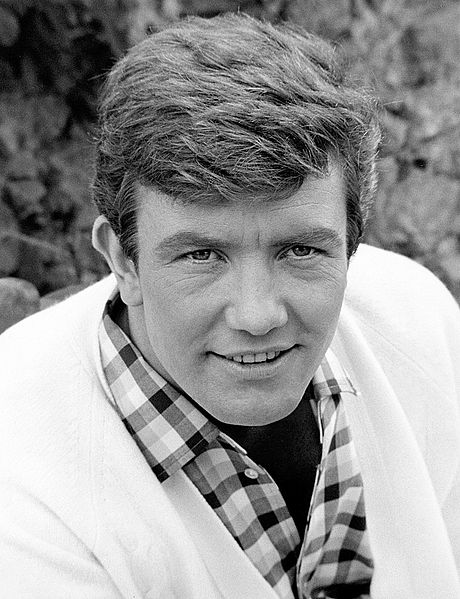
A lecturer and writer has described the Salford-born actor Albert Finney, who died last week at the age of 82, as irreplaceable.
Andrew Willis, Professor of Film at the University of Salford, said of the actor: “To fully realise his significance on has to include his varied and award-winning stage work as well as his forays into television which also were often rewarded by awards.
“When one takes all this into account, and given the changes in the film, theatre and television industries, I think it is fair to say that it is unlikely we will see his like again.”
The Oscar-nominated Finney, born on the 9th of May 1936 in Salford’s Charlestown, rose to fame in the 1960’s new wave era, and went on to star in Hollywood marvels, Tom Jones, Annie and Murder on the Orient Express.
Finney grew up the son of a bookmaker, but later went on to be educated at the Royal Academy of Dramatic Art (RADA) alongside Peter O’Toole and Alan Bates.
After graduating from Rada, Finney established his career in theatre and became a member of the Royal Shakespeare Company,with his first performance on a London Stage in 1958, and two years later, Finney broke through our film screens, with his first appearance in Tony Richardson’s The Entertainer (1960).
His portrayal of a disillusioned factory worker and ‘angry young man’ Arthur Seaton struck audiences across the country in Saturday Night and Sunday Morning, directed by Karen Reisz.
The introduction of the ‘kitchen sink era’, which portrayed the domestic situations of working class Britons in screen, proved increasingly popular in the late 1950s and Finney’s performance cements Reisz’s production to be a key film within the “angry” cinematic period.
“He was the godfather to us all” – Christopher Eccleston
Finney’s success led him to star as the title character in Tom Jones, a popular comedy that won four Oscars, and led him to his first Academy Award nomination for Best Actor. His portrayal of Tom Jones also saw Finney voted the ninth most popular star in the box office in 1963.
After his director debut in 1968 of Charlie Bubbles, Finney’s film roles became less frequent as he returned to his roots and focused on the stage. During this period, one of his high-profile film roles was as the Belgian detective Hercule Poirot in the film Murder on the Orient Express in 1974.
This role became so well known it became an irritation for Finney; “People really do think I am 300 pounds with a French accent,” he complained.
Although known for his dramatic roles, Finney appeared and sang in two musicals, the infamous Scrooge (1970) and the Hollywood version of Annie (1982), showing his versatility in roles and his acting credits cannot be matched to anyone else.
Finney also appeared in a string of TV dramas, including Dennis Potter’s final works Karaoke and Cold Lazarus, and as Winston Churchill in The Gathering Storm in 2002, for which he won Golden Globe, Bafta and Emmy awards.
Celebrities lined up to share their sadness and condolences over social media, showing the impact and reach of Albert Finney’s career, leaving a legacy to future actors and actresses.
#AlbertFinney is gone. One of the greatest actors of his generation; I remember him so vividly, especially in the film of “The Dresser”. A revelation, and one of the most remarkable performances I have ever seen.
— Bette Midler (@BetteMidler) 8 February 2019
Albert Finney was a real marvel. I loved his anger and his charm – and his Poirot. But, perhaps, above all his brilliant turn as Leo in the sublime ‘Miller’s Crossing’. It doesn’t get better than this. RIP https://t.co/EREvHmObNN
— Mark Gatiss (@Markgatiss) 8 February 2019
Albert Finney is gone…
The Best.
But more than our greatest actor…
What the Germans call “Ein Mensch”
— John Cleese (@JohnCleese) 8 February 2019
We are very sad to hear of the loss of Albert Finney.
His performances in plays by Shakespeare, Chekhov and other iconic playwrights throughout the 60s, 70s and 80s stand apart as some of the greatest in our 200 year history. pic.twitter.com/6UmFOjLjx1
— The Old Vic (@oldvictheatre) 8 February 2019
Christopher Eccleston, who is also from Salford, said to the BBC: “He was the only actor I knew of from Salford, so he was my inspiration.
He added: “What was interesting about him was he could deliver very, very truthful performances, but he also went on stage and played classical roles, and of course he was trained by and understudied Laurence Olivier, so he could do it all”.















Recent Comments